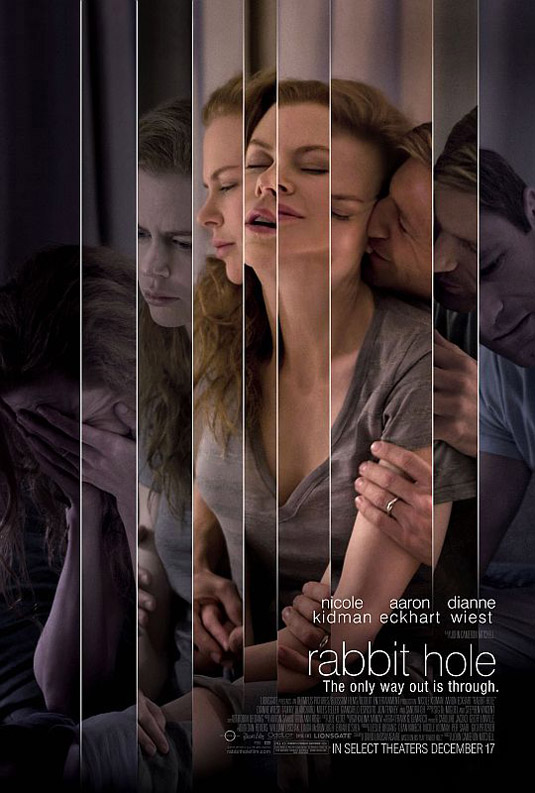Just Go With It
Posted on February 11, 2011 at 7:00 am
The good news: no one in this movie has sex with an old lady or gets stabbed in the foot. So Adam Sandler is making some progress. And Jennifer Aniston continues to be a lovely screen presence, with sublime comic timing and underrated acting skills. There’s a surprise appearance by an Oscar-winning star who gives the much-too-long-time-in-coming third act a boost.
Now for the bad news: just about everything else. Adam Sandler and director Dennis Dugan have taken the delightful 1969 comedy “Cactus Flower” and dumbed it down, grossed it up, and draaaaaagggggged it out. It wastes its premise, insults its characters, and shows an attitude toward the audience somewhere between neglect and contempt, sometimes both.
Sandler plays Danny Macabee, a plastic surgeon who discovers on his wedding day in 1988 that his bride was a gold-digging tramp. He also discovers that pity and unavailability is a sure recipe for getting what I will politely call “dates” with beautiful ladies. And he spends the next 23 years using a fake wedding ring and even faker tales of marital woe to sleep with an entire generation of women who are beautiful and compassionate but not very smart.
And then he meets Palmer (Brooklyn Decker), a sweet, smart, schoolteacher with the body of a Sports Illustrated swimsuit issue supermodel. But she discovers his ring and is hurt and angry. Rather than tell her the truth, that he is a hopeless cad who uses and exploits women, he decides to tell her he is getting divorced. She insists on meeting the wife to verify his story, and he enlists his office assistant Katherine (Aniston), a single mother, to act the part. Eventually, her children get caught up in the deception, and just as Katherine is fed up and about to tell Palmer the truth, she runs into an old friend and has her own reasons for wanting to appear happily married.
Following in the dishonorable tradition of “Couples Retreat,” this movie seems to have been generated by Sandler’s sole priority: a free trip to Hawaii. Side benefits: a reason for two of the world’s most beautiful women to gaze at him adoringly, walk around in bikinis, and kiss him; and doing as little work as possible. It’s one thing for a young man to be an immature slacker. Sandler is far too old for this. Both the actor and his character come across as doughy, louche, and charmless.
Bizarrely, Sandler seems to have no idea of how odious the behavior of his characters is, perhaps because audiences have been acting as enablers by continuing to buy tickets, failing to notice that he ran out of comic steam a long time ago. There is a disagreeable misogynistic and materialistic ugliness to the film. Macabee is a plastic surgeon just so there can be jokes about grotesque mishaps — Rachel Dratch as a woman with one eyebrow much higher than the other, Kevin Nealon as man with a face numb and paralyzed from Botox, some poor woman as the victim of a deflated breast implant who has to suffer an excruciating scene with Aniston and Sandler rubbing numbing cream on her nipples. The good guys in the movie, Katherine and her children, gouge Macabee out of tens of thousands of dollars of things with no sense of responsibility. Katherine is supposed to be devoted to her children but does not seem to care that she leaves her children with a negligent sitter. And then her worth is proven when she, too, turns out to look fabulous in a bikini, hardly a big reveal to anyone who has passed by People Magazine at the check-out counter. And everyone lies to and manipulates the perfectly nice Palmer. What is this supposed to show us? How are we supposed to care about these people?Not one but two characters assume idiotic accents for no reason. There is a scene involving mouth-to-mouth resuscitation of a sheep. There are many jokes about male body parts and many, many, many jokes about poop, a subject of much more fascination to the characters in the movie than anything else, followed distantly by jealousy, competition, acquisitiveness, bikinis, being contemptuous of anyone who is old or overweight or unattractive (except for Sandler), and being resentful toward people who look good in bikinis and thus make us feel acquisitive or jealous. Oh, and homophobia. Please, don’t go with it.


